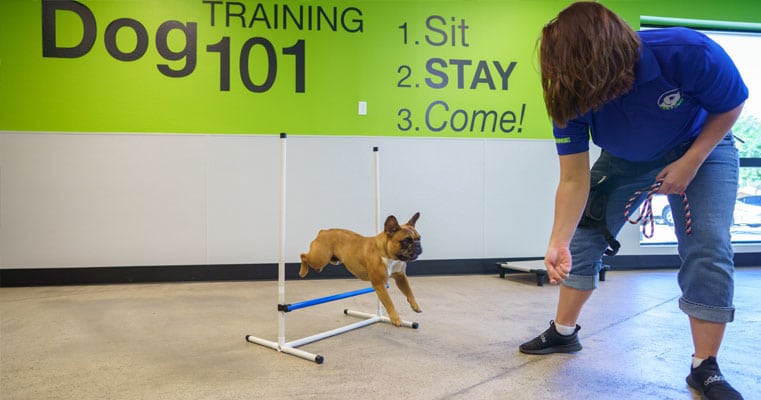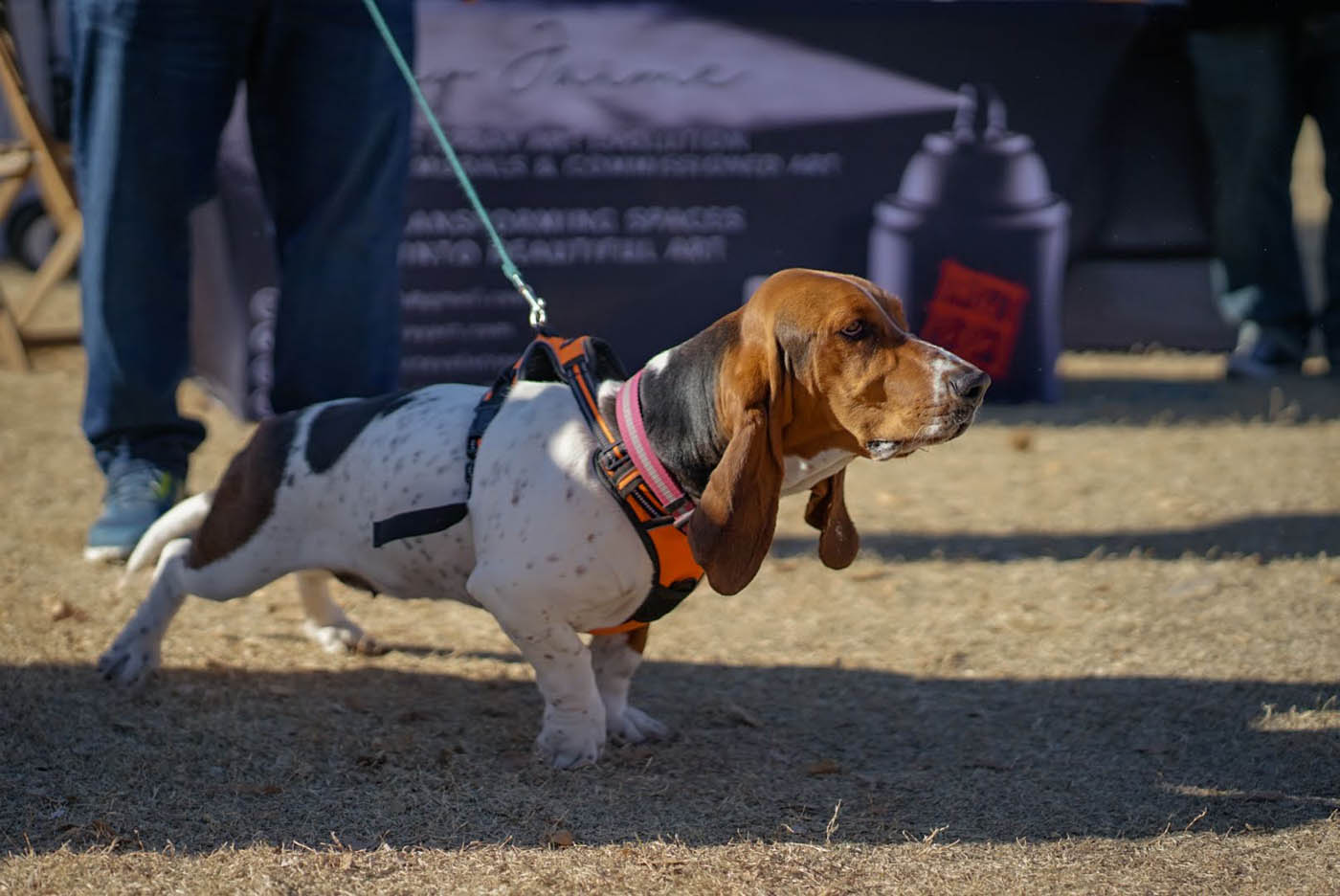Why Dog Training Near Me is Essential for Your Canine Companion
Why Dog Training Near Me is Essential for Your Canine Companion
Blog Article
Unlock Your Pet dog's Possible: Proven Pet Training Approaches for Success
Effective dog training is a nuanced procedure that depends upon recognizing canine habits and using scientifically backed strategies. dog training charlotte nc. By integrating favorable reinforcement, establishing clear commands, and focusing on socializing, canine owners can grow an effective connection with their animals. Challenges commonly arise that call for customized remedies and a patient method. Discovering these shown techniques discloses not only the capacity for behavior renovation but also the deeper bond that can be formed between owner and pet. What crucial strategies must be taken into consideration to truly unlock your canine's capacity?
Recognizing Pet Dog Habits
Understanding canine actions is essential for reliable training and cultivating a positive partnership in between pet dogs and their proprietors. A thorough grasp of canine body language, vocalizations, and social communications is essential for identifying their emotions and requirements. Canines interact mainly with non-verbal signs; for instance, a wagging tail may indicate excitement, while pinned ears can signal concern or entry.

Moreover, ecological factors play a considerable role in shaping a pet dog's behavior. Modifications in regular, new environments, or the existence of unknown individuals can cause anxiety or stress and anxiety in dogs. Acknowledging these triggers makes it possible for proprietors to mitigate negative responses and create ideal training techniques.
Ultimately, a deep understanding of pet dog actions lays the foundation for successful training techniques, improving both behavior and the overall bond between the dog and its proprietor. dog training charlotte nc. This knowledge is important for fostering a well-adjusted, delighted canine companion
Favorable Support Strategies
Effective training depends greatly on favorable support methods, which have been revealed to generate significant outcomes in shaping desired habits in dogs. This approach includes awarding a canine for displaying specific actions, consequently increasing the chance that these behaviors will certainly be repeated. Benefits can take numerous types, consisting of treats, praise, playthings, or play, relying on what encourages the individual canine.

It is necessary to progressively eliminate benefits as the canine finds out the actions, transitioning to periodic support. This method maintains the actions gradually while preventing dependence on continuous benefits. By concentrating on positive reinforcement, trainers can grow a relying on connection with their pets, promoting a participating and healthy training environment that boosts total obedience and performance.
Developing Constant Commands
A basic element of effective pet dog training is the facility of constant commands. Consistency in commands is crucial for reliable interaction in between the trainer and the pet dog. When commands are uniform, canines learn to link details words with wanted habits, which accelerates the training procedure and enhances understanding.
To develop constant commands, it is vital that all member of the family use the exact same terminology and motions. For instance, if one person makes use of "rest" while an additional states "take a seat," it can create confusion for the dog. Select clear, distinctive words for commands and make sure every person entailed in the pet's training complies with these choices.
Strengthen commands with regular practice, ensuring that the pet dog gets sufficient possibilities to respond correctly. When a pet successfully complies with a command, immediate positive reinforcement needs to follow.
Lastly, hold your horses. Developing consistent commands requires time and effort. With dedication and clarity, you will aid your canine create a solid understanding of assumptions, eventually bring about a mannerly companion.
Socialization and Direct Exposure
Interacting socially a dog is important for cultivating a well-adjusted and confident buddy. This procedure entails subjecting your pet to a selection of atmospheres, individuals, and additional reading other pets to create their social skills and adaptability. Early socialization, preferably in between the ages of 3 to fourteen weeks, is vital, as it lays the groundwork for a pet dog's future behavior.
Throughout socializing, aim to give positive experiences in various settings, such as parks, active roads, and homes with various other pets. Introduce your dog to numerous stimulations, including sounds, views, and scents, making sure that each experience is satisfying. This direct exposure aids alleviate worry and anxiety, leading the way for a much more resilient pet dog.
Taking part in controlled team play sessions with various other pets can likewise boost social skills, instructing your pet dog suitable communications and borders. Always monitor your pet's convenience level throughout these experiences, progressively enhancing direct exposure as their self-confidence grows. Remember, the goal is to develop an all-round pet dog that prospers in varied situations, promoting a harmonious connection with both human beings and various other animals. Prioritizing socializing will substantially add to your pet's overall happiness and behavior throughout their life.
Overcoming Common Training Challenges

Pet dogs may have a hard time to concentrate in strange or busy settings. Gradually desensitize your canine to interruptions by starting training in a peaceful environment and slowly introducing more stimulations as they come to be proficient.
Additionally, behavioral problems like leaping or too much barking can become frustrating. Address these by instructing alternate habits, such as resting steadly when welcoming visitors. Uniformity and perseverance are critical; reinforce desired behaviors regularly and avoid scolding, which can result in confusion.
Lastly, recognize that each canine is distinct, and training timelines may vary. Dressmaker your method to your pet dog's specific requirements, and look for expert assistance if required. With perseverance and the right techniques, conquering these challenges can lead to a trained, pleased canine companion.
Conclusion
In conclusion, opening a pet dog's prospective necessitates an extensive approach that includes an understanding of canine habits, the application of positive reinforcement strategies, and the establishment of regular commands. Early socialization and exposure to varied atmospheres even more boost a pet dog's versatility and confidence. By resolving typical training challenges with customized techniques and patience, a important link unified and participating connection in between canine and trainer can be promoted, ultimately causing a well-behaved friend efficient in thriving in numerous situations.
Efficient canine training is a nuanced procedure that hinges on recognizing canine behavior and using scientifically backed approaches.Comprehending pet behavior is essential for efficient training and fostering a positive partnership in between canines and their proprietors.Effective training depends greatly on positive reinforcement strategies, which have been shown to generate read this article significant outcomes in forming desired actions in canines. When commands are consistent, pets learn to connect details words with desired habits, which increases the training process and improves understanding.
In final thought, opening a dog's prospective requires a detailed approach that incorporates an understanding of canine habits, the application of favorable support strategies, and the establishment of consistent commands.
Report this page